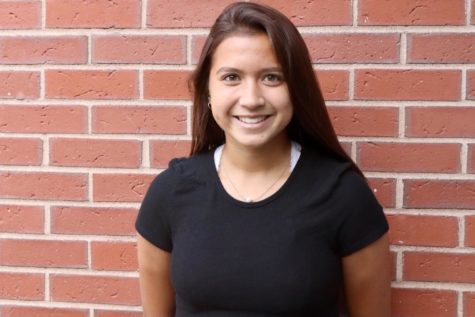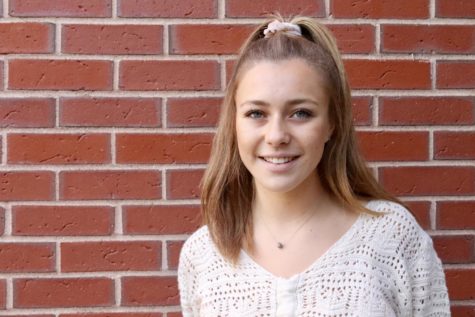Athletic department speaks out about EEE
Credit: Ellie Tyska
This past Wednesday, the East Middlesex Mosquito Control Project issued for an EEE pesticide application taking place at the high school. This way, the school is hoping to prevent the risks while athletes have practices on the grass fields. “There is a risk – and it’s a minimal risk – that you’re going to get a bite by a mosquito that is infected with EEE. In Wayland, we haven’t had mosquitoes that are testing positive [for EEE], but mosquitoes don’t follow the borderline between towns, and it’s not worth the risk,” WHS nurse Amy Schoeff said.
September 17, 2019
While most of the Wayland population is very aware of the threat of Eastern Equine Encephalitis (EEE) virus in town, the Wayland athletic programs have been taking extra precautions to ensure the safety of their players.
“I think it really started back in June. We started to be aware of the increase in numbers [of EEE] around the state and how it was moving this way,” WHS Athletic Director Heath Rollins said. “I think we started with our coaches and [had] them meet in August to talk about the assumption of the virus spreading our way and how it would’ve probably have an impact on our times that we practice throughout the year.”
Because the evening is the prime time of the day for mosquitoes to come out, scheduling changes for practices and games have been implemented in order to prevent the risk of any bites.
“I haven’t been going outside at night and [tried] to stay inside,” senior varsity football player Philip Koechling said. “I’ve also been wearing a lot of bug spray to keep the mosquitoes off of me.”
In addition to the time changes that have been made with the EEE virus, the limited amount of fields open due to renovations and the new bell times the school implemented this year have made it even more difficult for the athletics department to keep a tight and organized schedule.
“[The EEE risk] has limited the times that people can be outside,” WHS nurse Amy Schoeff said. “That in combination with the fewer fields that we’ve got, the schedule is very minimal, and we’re having to find alternative places to go, but the problem is the other towns are also limiting the time of day that sports can be. There’s nothing after 6 p.m.. That’s a problem [for Wayland athletics].”
Because protecting the students is always the number one priority, the necessary changes have impacted many of the members of the athletic program, especially the players.
“Our games are earlier now so [last] Friday, our game in Lincoln-Sudbury [was] at 4:30 p.m. instead of at 6 p.m., so it’s kind of an afternoon game,” Koechling said. “We had to rush from the high school to get to the game on time. We even got out early to get to the game on time.”
Not only is the athletics department struggling with the virus, but as a result of the required practice times, communication has been vital for all of the local towns in terms of scheduling games.
“It’s a lot of communication with the state, the Board of Health, and, for our opponents, at times, to make sure that we’re putting our kids at away games in a safe location,” Rollins said.
With fall right around the corner, the colder temperatures will come along with it. Although many may miss the warm weather with temperatures dropping, the mosquito population will as well.
“Officially, it’s the first hard frost that kills the mosquitoes, and that could be the end of November [or] early December, but the risk goes down with cooler weather,” Schoeff said. “Mosquitoes don’t fly as much when the [temperature] goes down. Typically, I think it’s the end of September when we can start to feel a little bit better [and] a little less concerned about getting bit.”
Until the frosts, EEE will always be a risk, so it’s important to be aware and take precautions when necessary.
“[EEE] can be fatal, and those that survive will likely have different levels of brain damage,” Schoeff said. “You don’t want it. It’s not worth it.”





![Last Wednesday, the Wayland School Committee gathered to discuss a number of topics regarding the health curriculum and Innovation Career Pathway course. Another large topic of conversation was the ways to potentially mitigate distracting cell phone usage. "These [phones] are going to distract your learning and social relationships," Superintendent David Fleishman said. "That's concrete right there."](https://waylandstudentpress.com/wp-content/uploads/2025/06/Screenshot-2025-06-04-at-9.49.31 PM-1200x886.png)



























![Troy Hoyt finishes the Boston Marathon, running for the Hoyt Foundation. T. Hoyt is the son of Hoyt Foundation CEO Russ Hoyt.
“[Running a marathon] might seem like a big thing, when it’s presented to you at first, but if you break it up and just keep telling yourself, “Yes, you can,” you can start chipping away at it. And before you know it, you’ll be running the whole 26 miles, and you won’t even think twice about it.” T. Hoyt said.](https://waylandstudentpress.com/wp-content/uploads/2025/04/C36E8761-1CBB-452E-9DF2-543EF7B1095E_1_105_c.jpeg)











































![This past Wednesday, the East Middlesex Mosquito Control Project issued for an EEE pesticide application taking place at the high school. This way, the school is hoping to prevent the risks while athletes have practices on the grass fields. "There is a risk - and it's a minimal risk - that you're going to get a bite by a mosquito that is infected with EEE. In Wayland, we haven’t had mosquitoes that are testing positive [for EEE], but mosquitoes don’t follow the borderline between towns, and it's not worth the risk," WHS nurse Amy Schoeff said.](https://waylandstudentpress.com/wp-content/uploads/2019/09/eee-Cropped-900x600.jpg)


